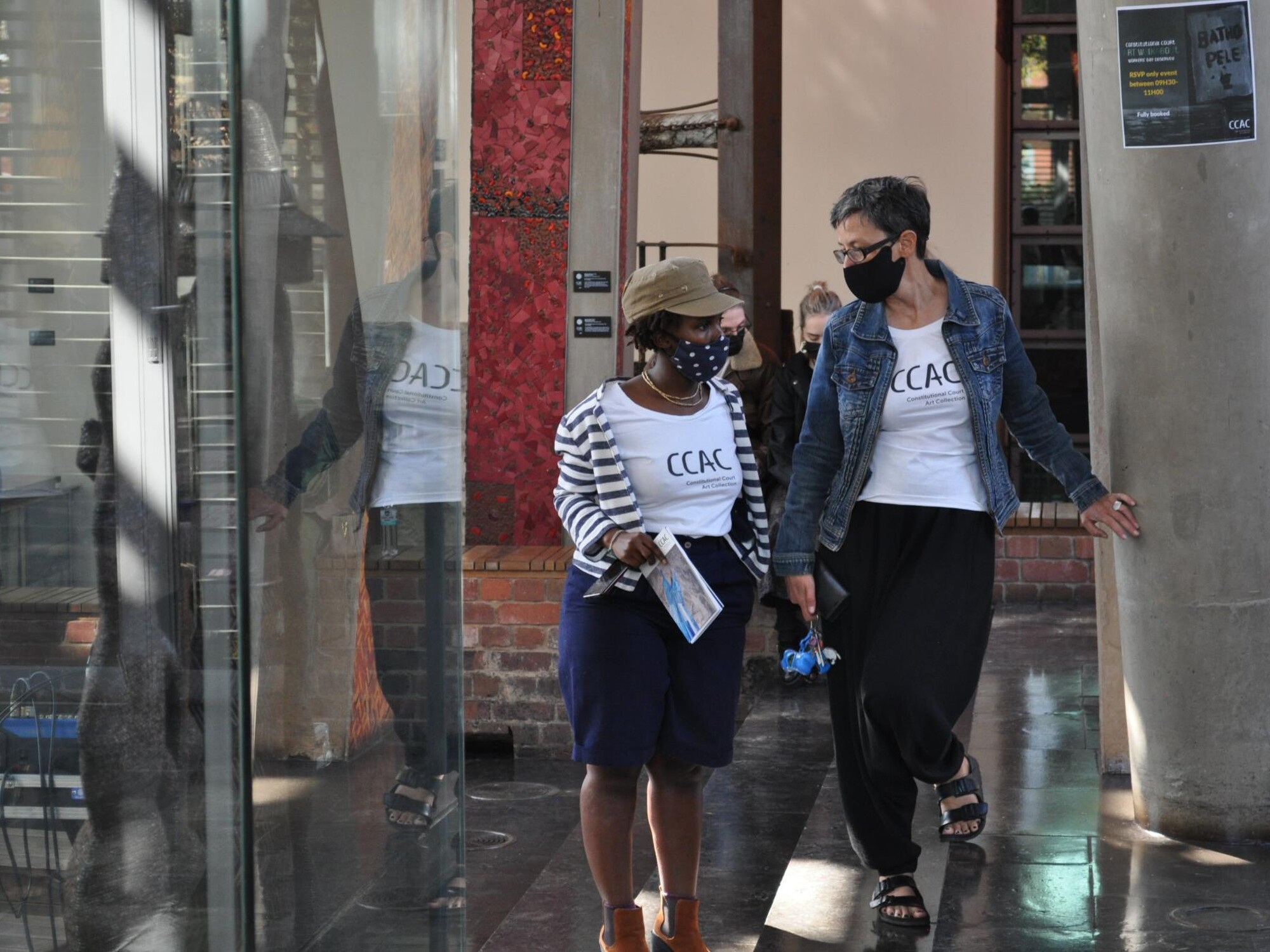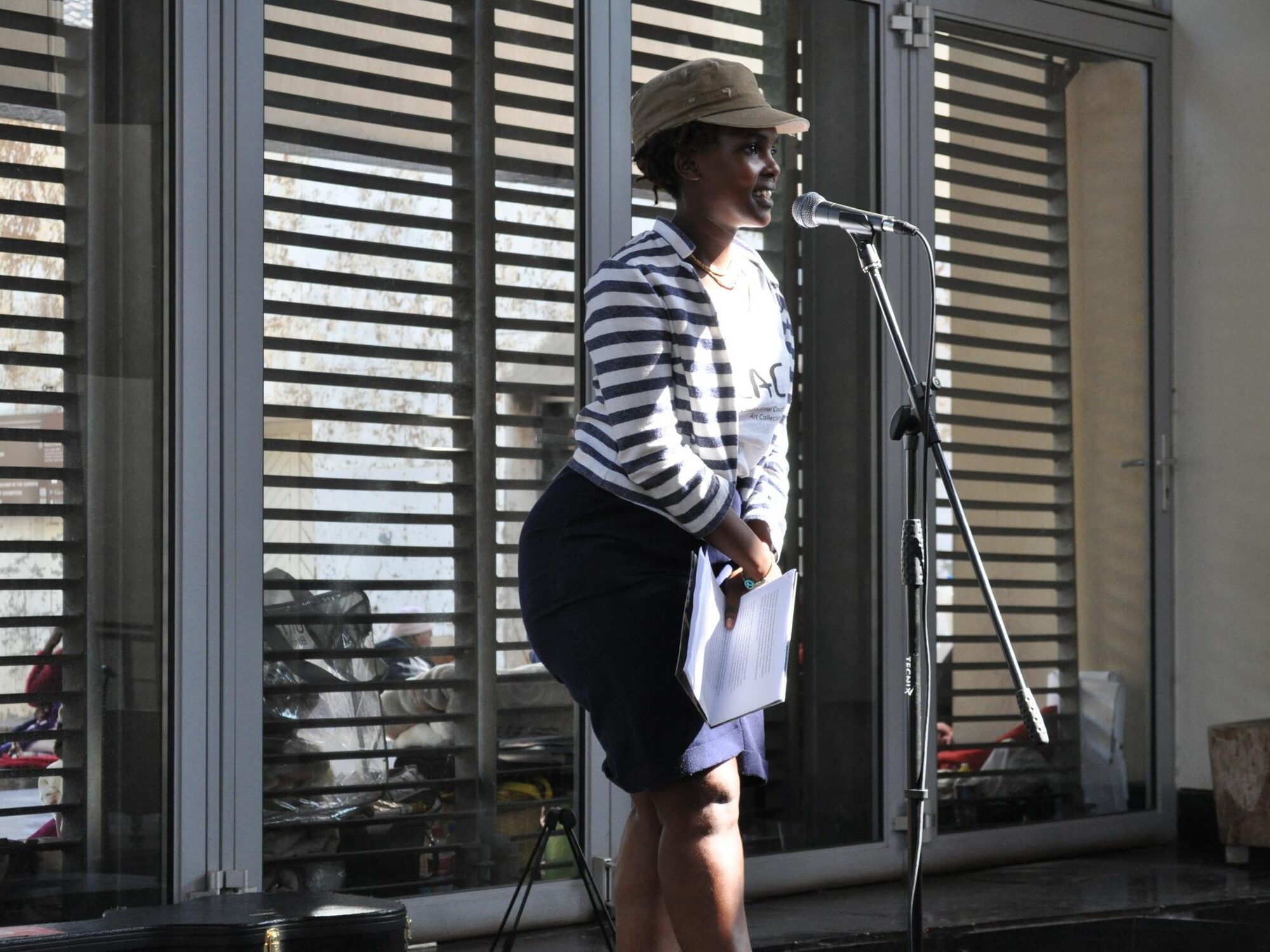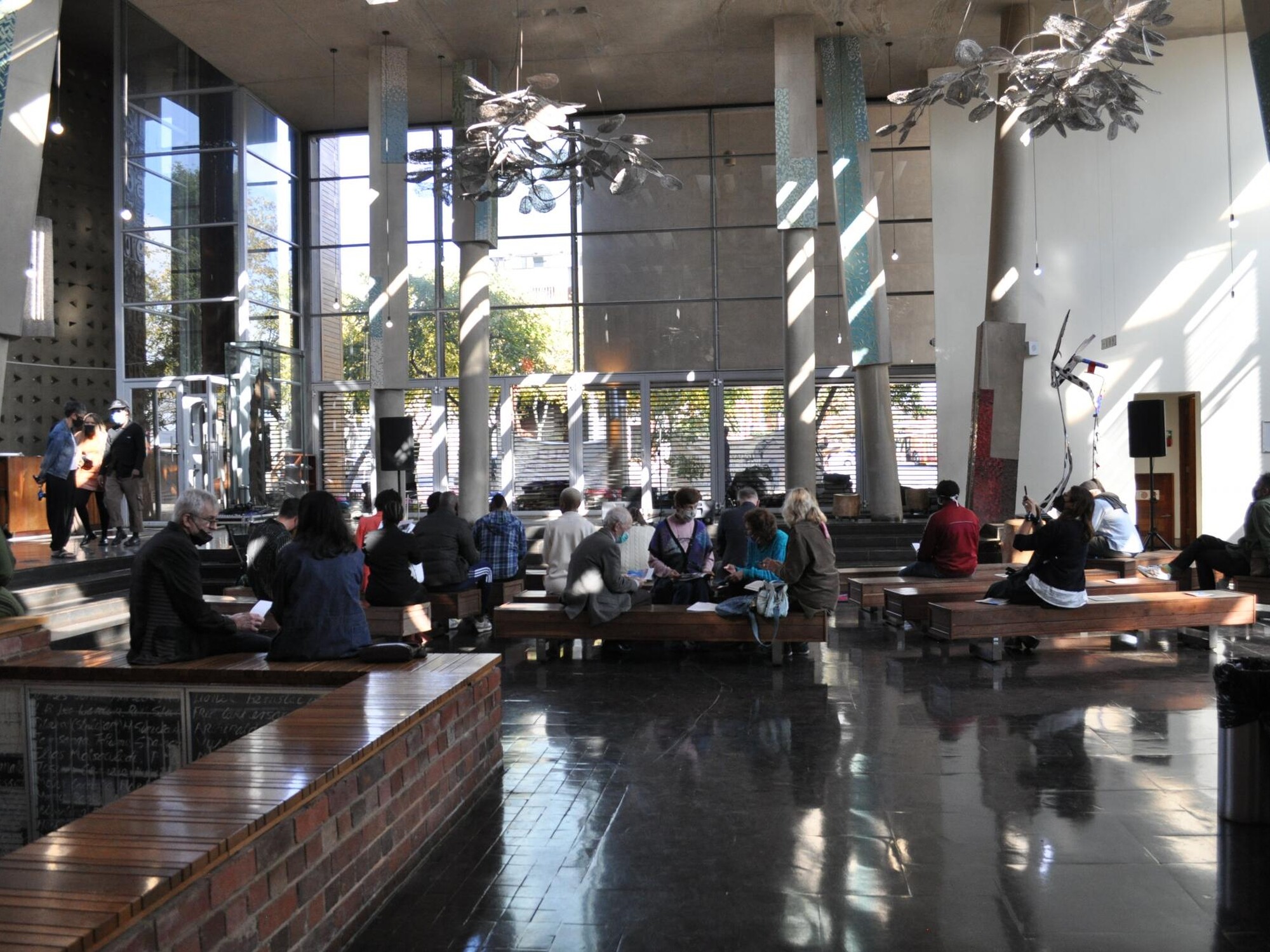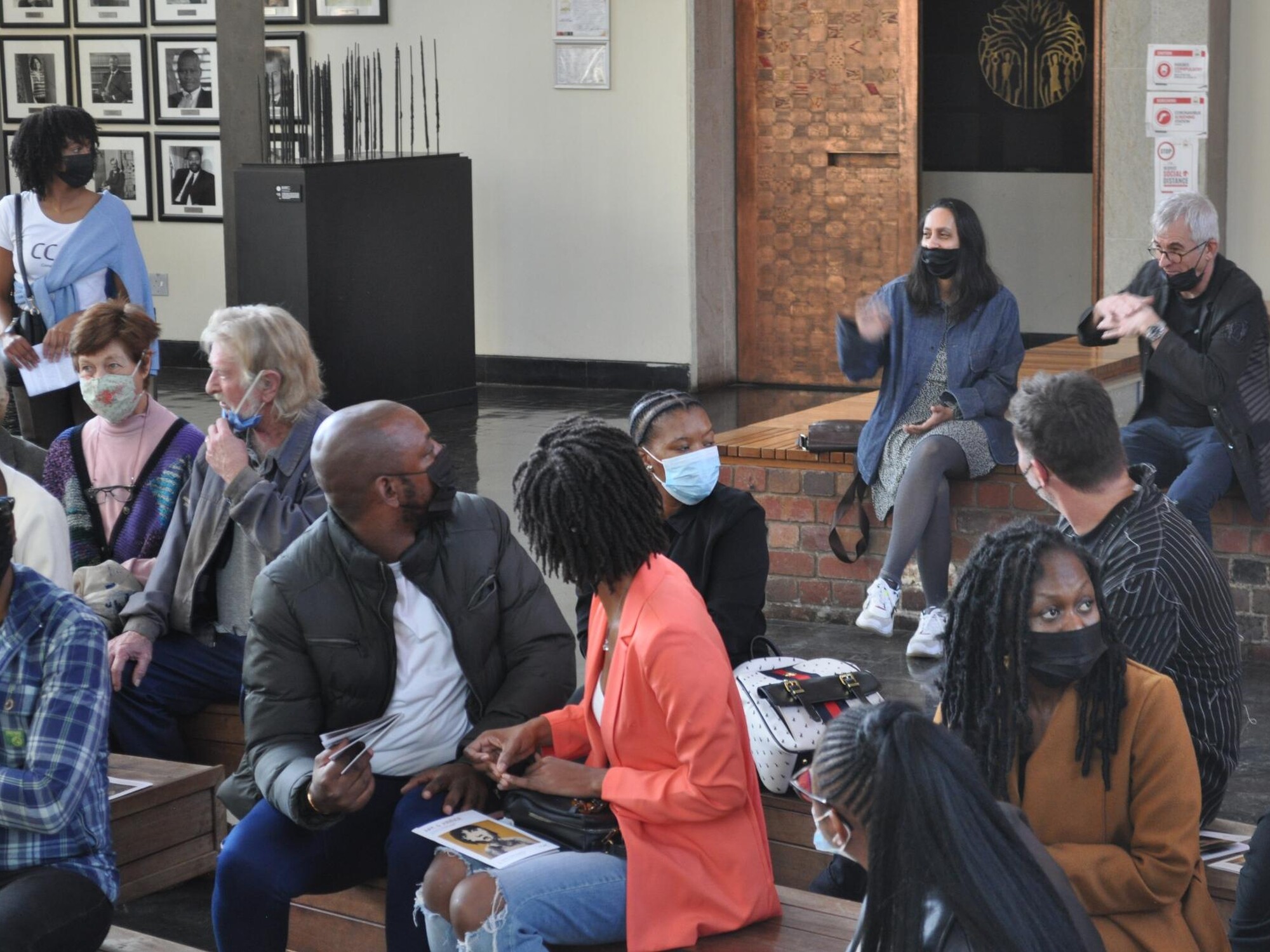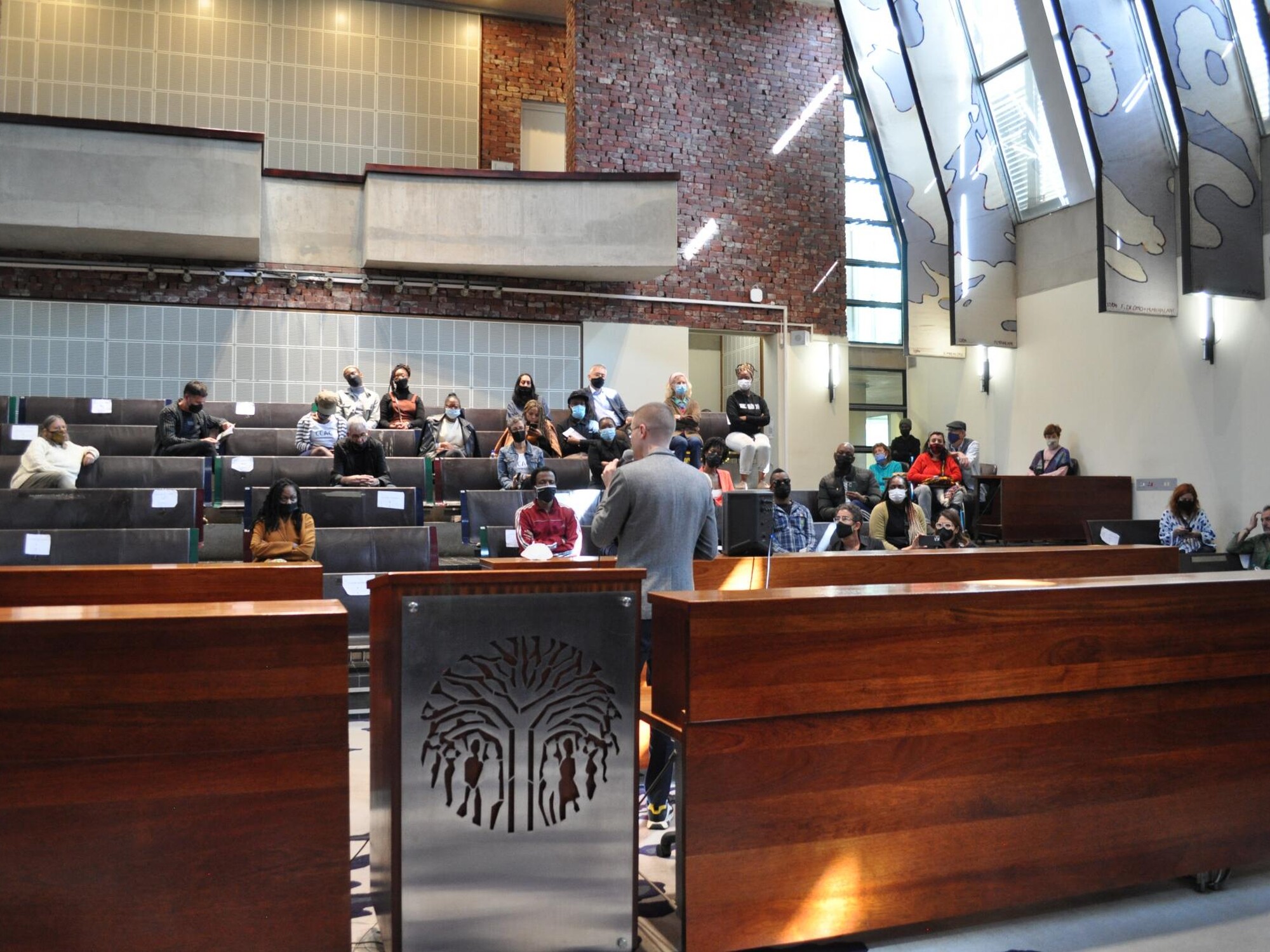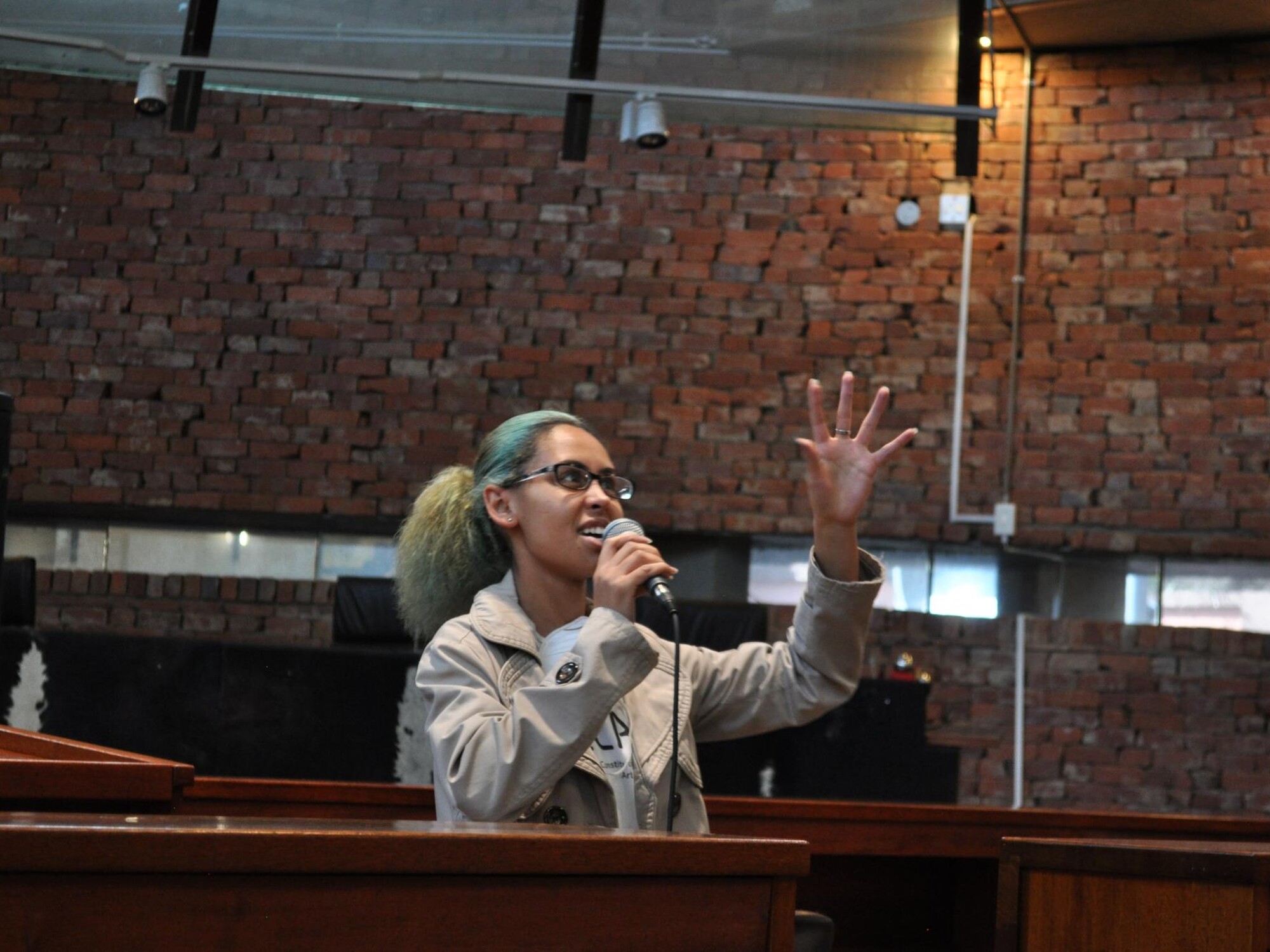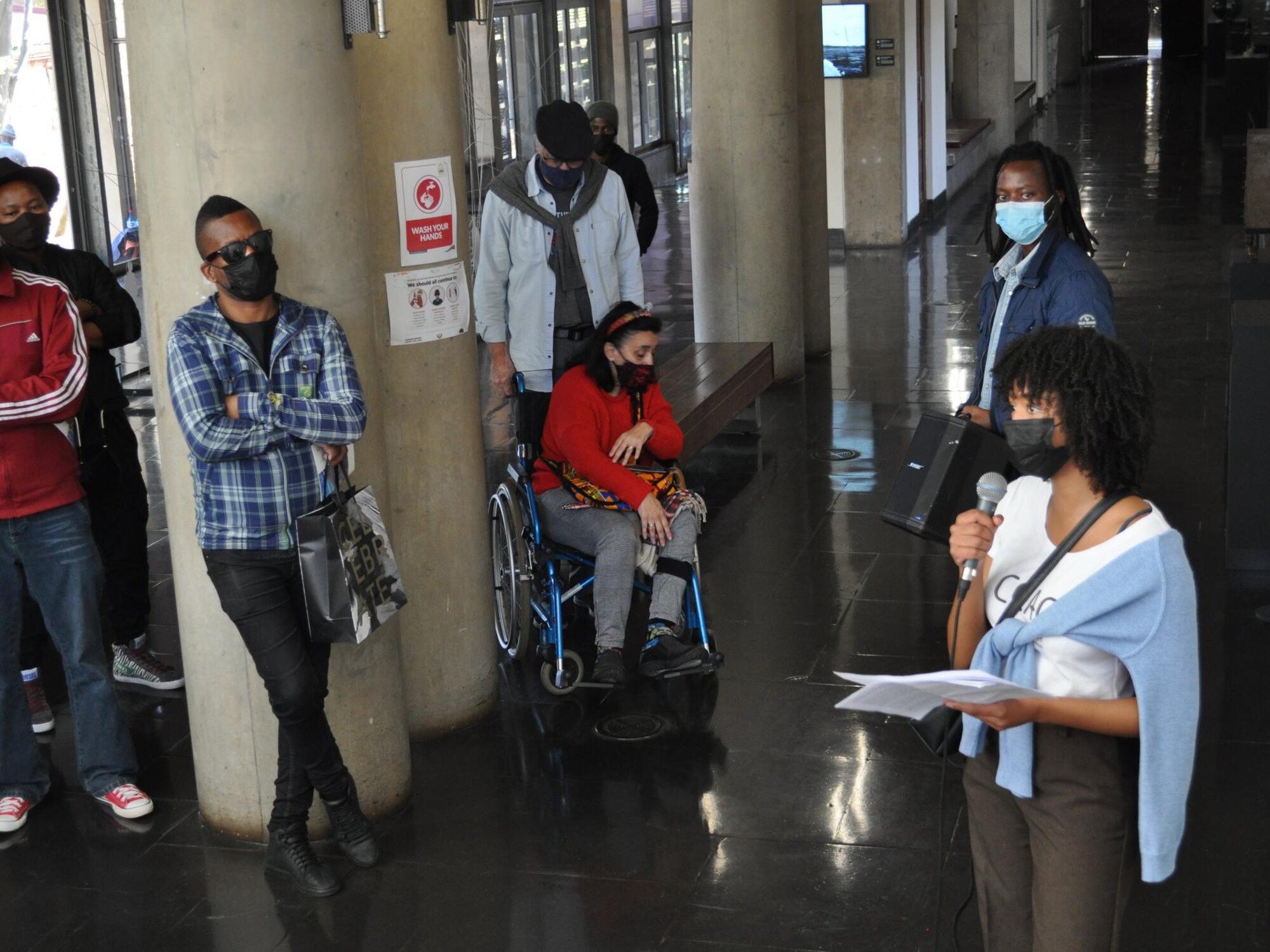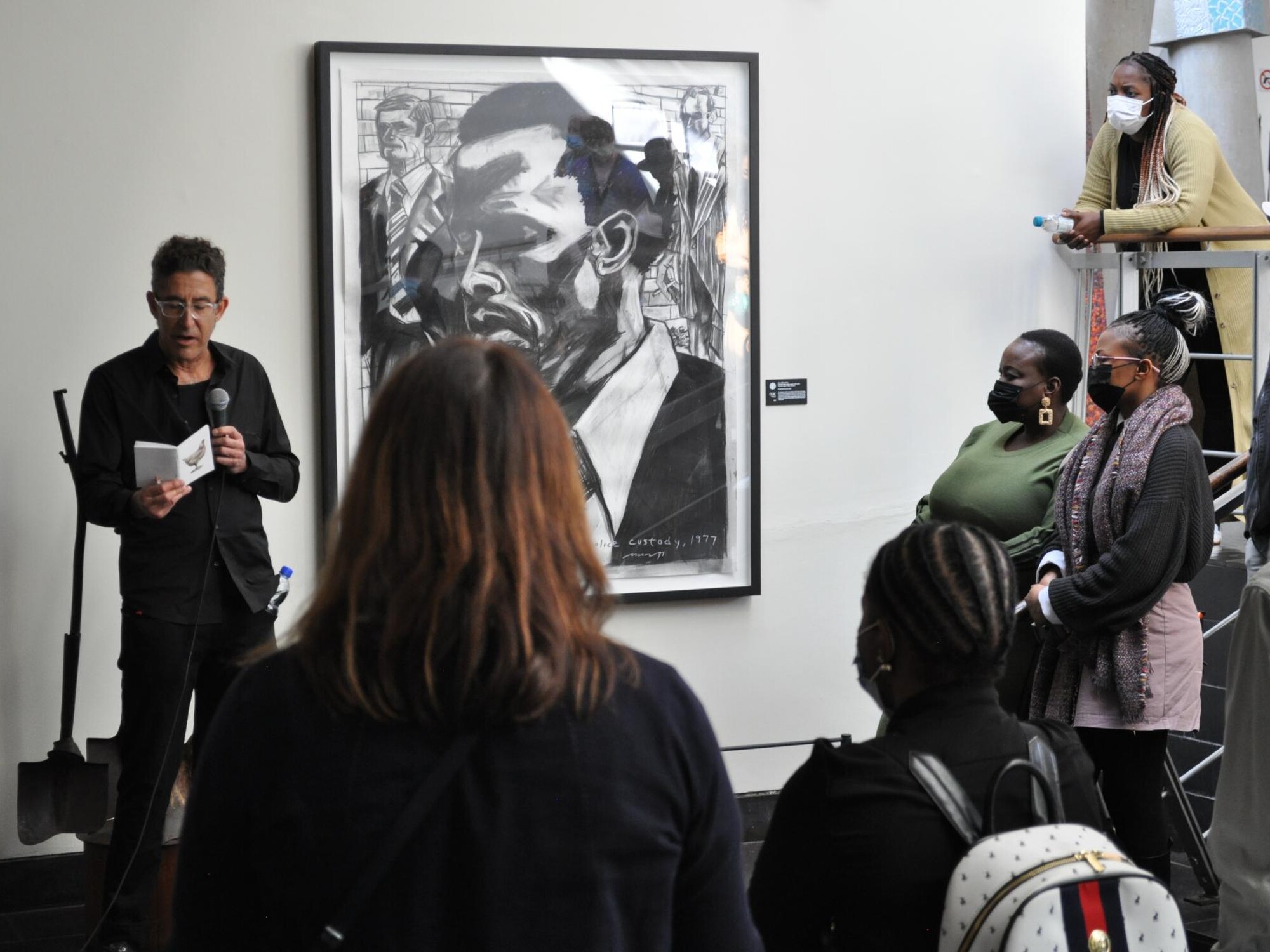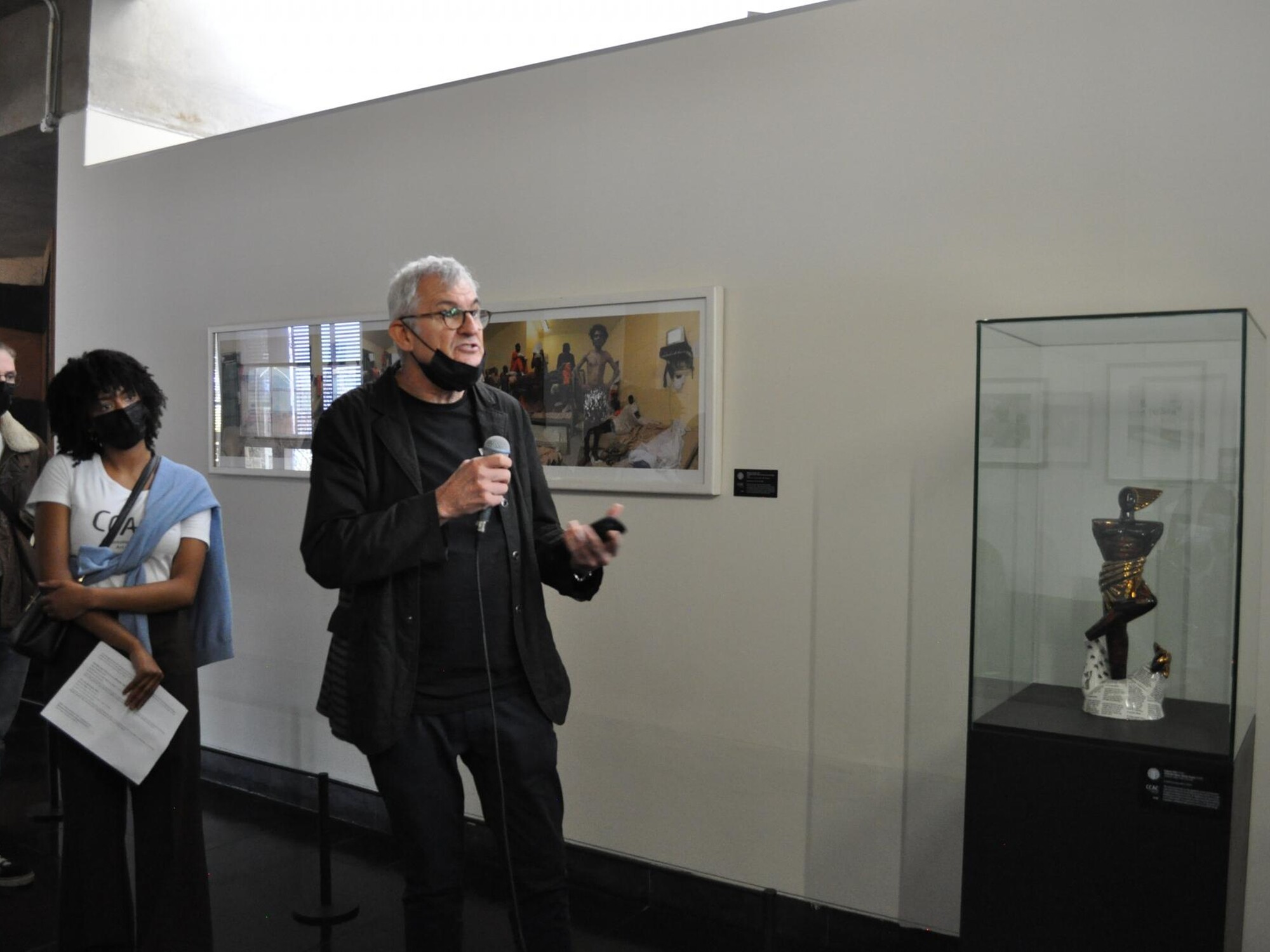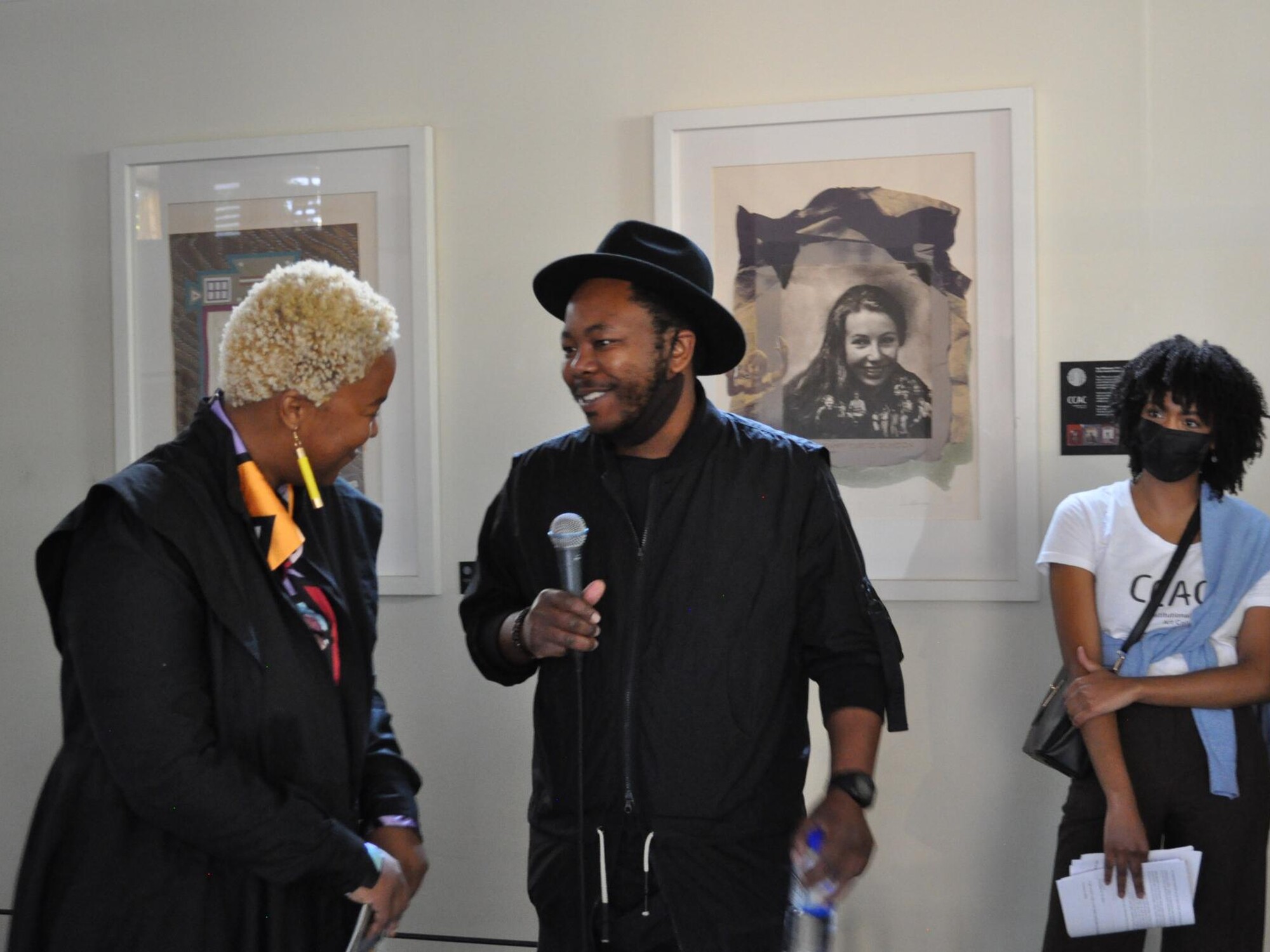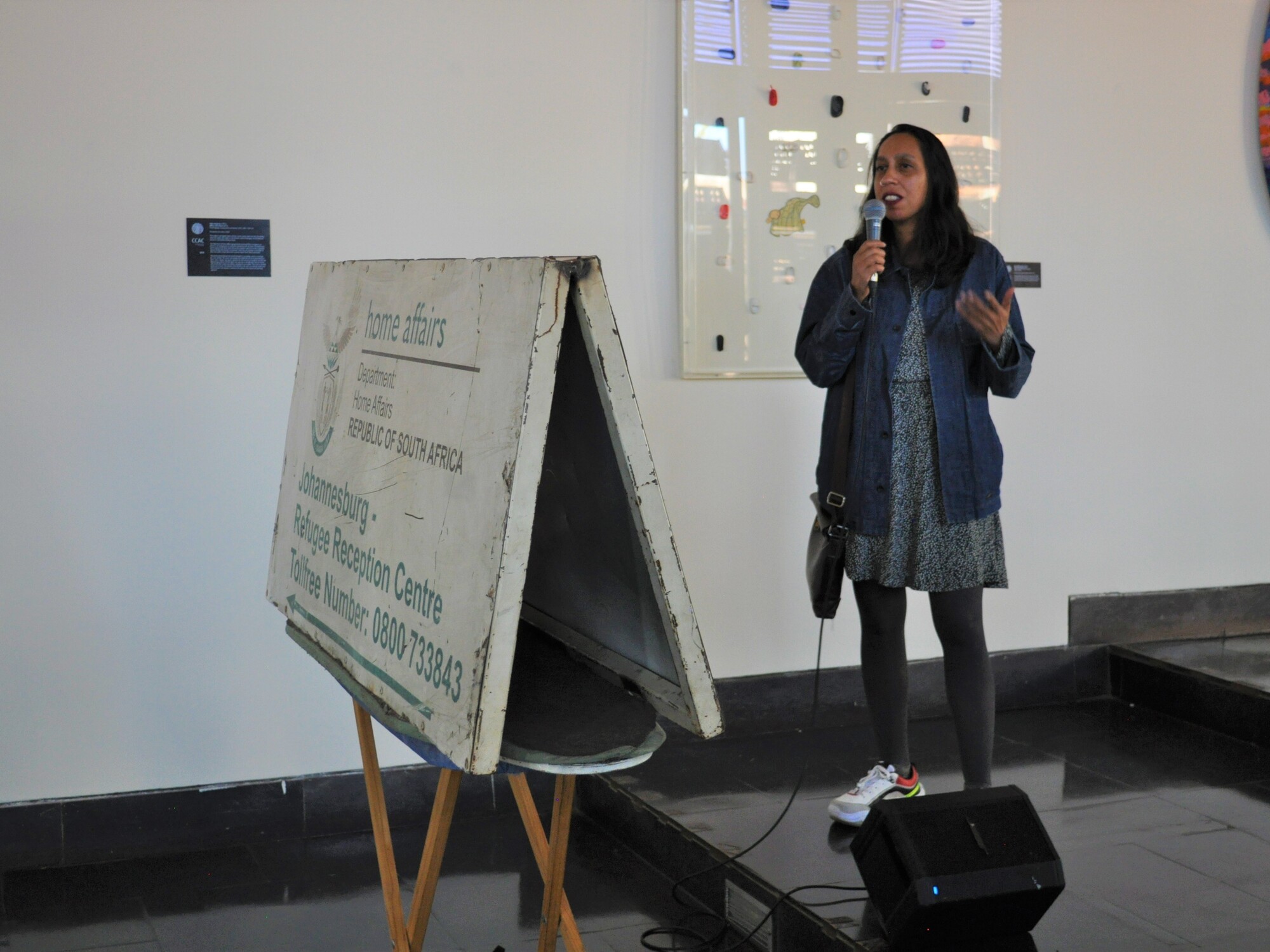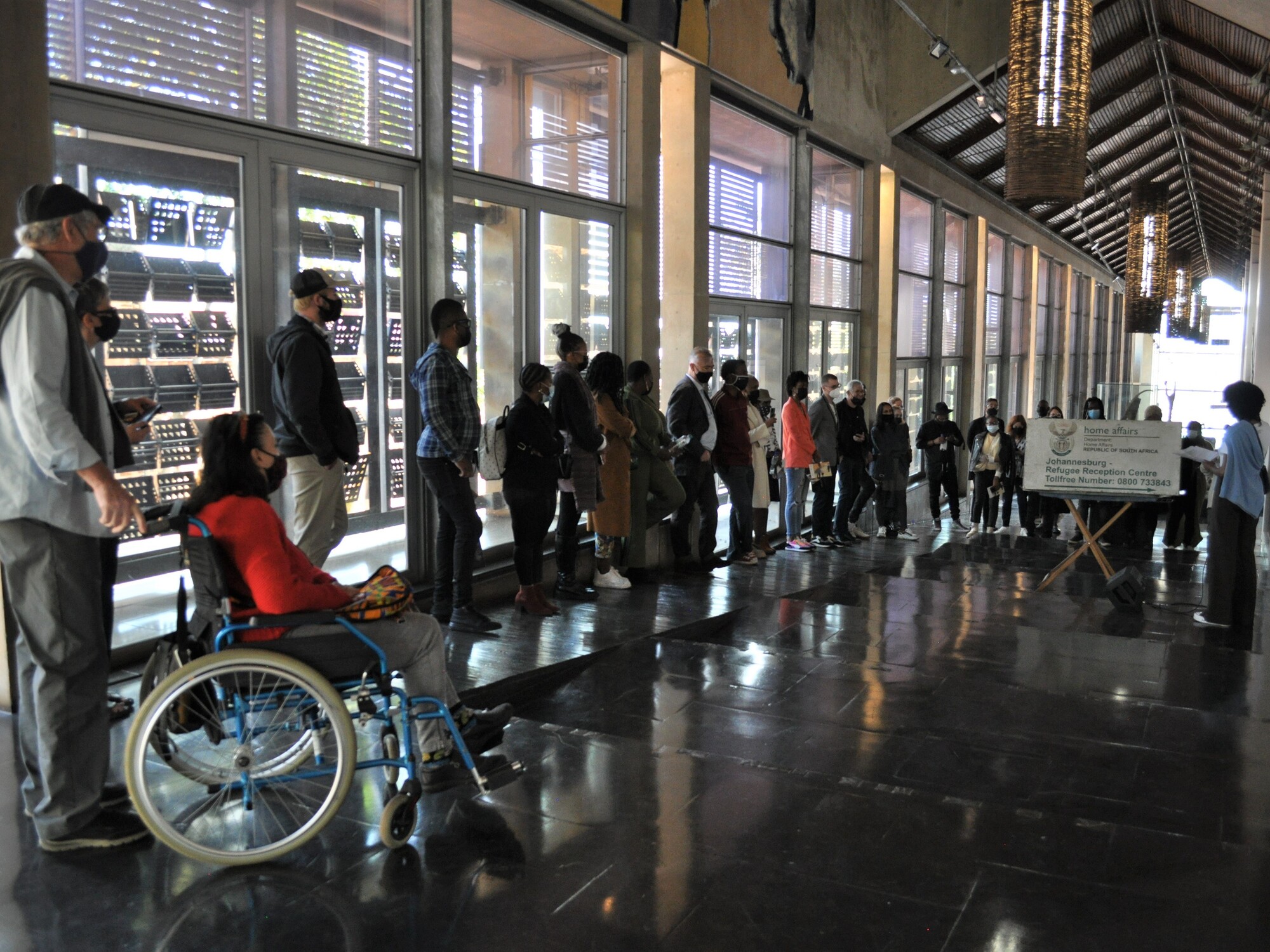A recap of our Workers' Day curators and artists walkabout
DATE POSTED: 26 May 2022
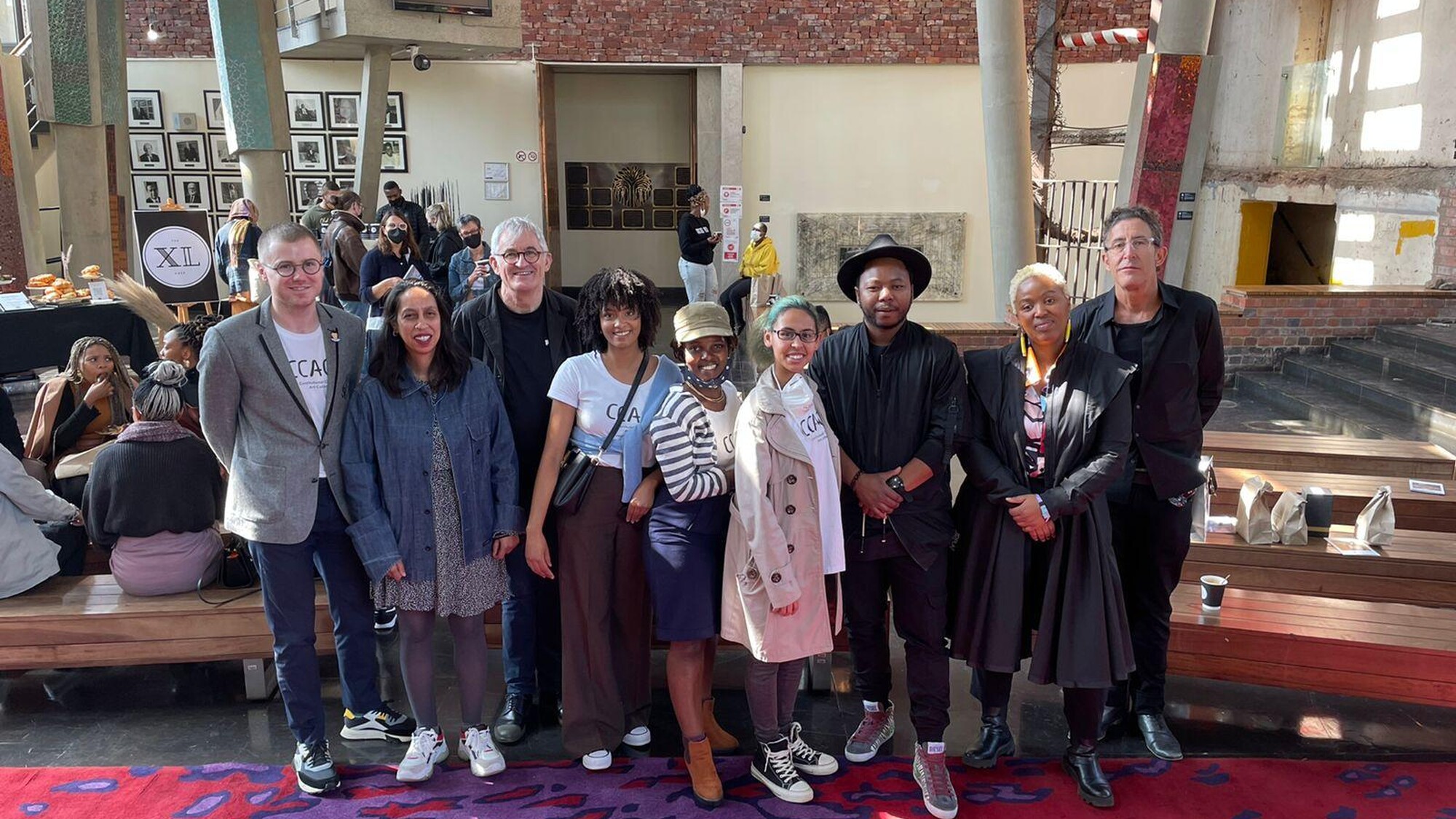
Artists and curatorial team at the Constitutional Court Art Collection Workers' Day event on 2 May 2022. From left to right: Francois Lion-Cachet,Usha Seejarim, Eugene Hön, Kay-Leigh Fisher, Thina Miya, Micayla Mohamadie, Thabang Lehobye, Msaki and Amos Miller. Photograph by Amohelang Mohajane.
Welcome to the Constitutional Court
In the early morning of Workers' Day Observed, we welcomed our guests and artists at the Constitutional Court and gathered in the foyer under the canopy of Walter Oltmann'sWire Chandeliers (2004). Francois Lion-Cachet, the curator of Public Engagement, opened the event and situated the group within the history of the site and theme of part of the new exhibition in the public gallery. In celebration of workers' rights, the new exhibition features artworks that broadly relates to Johannesburg's history of mining, workers' rights, imprisonment and xenophobia.
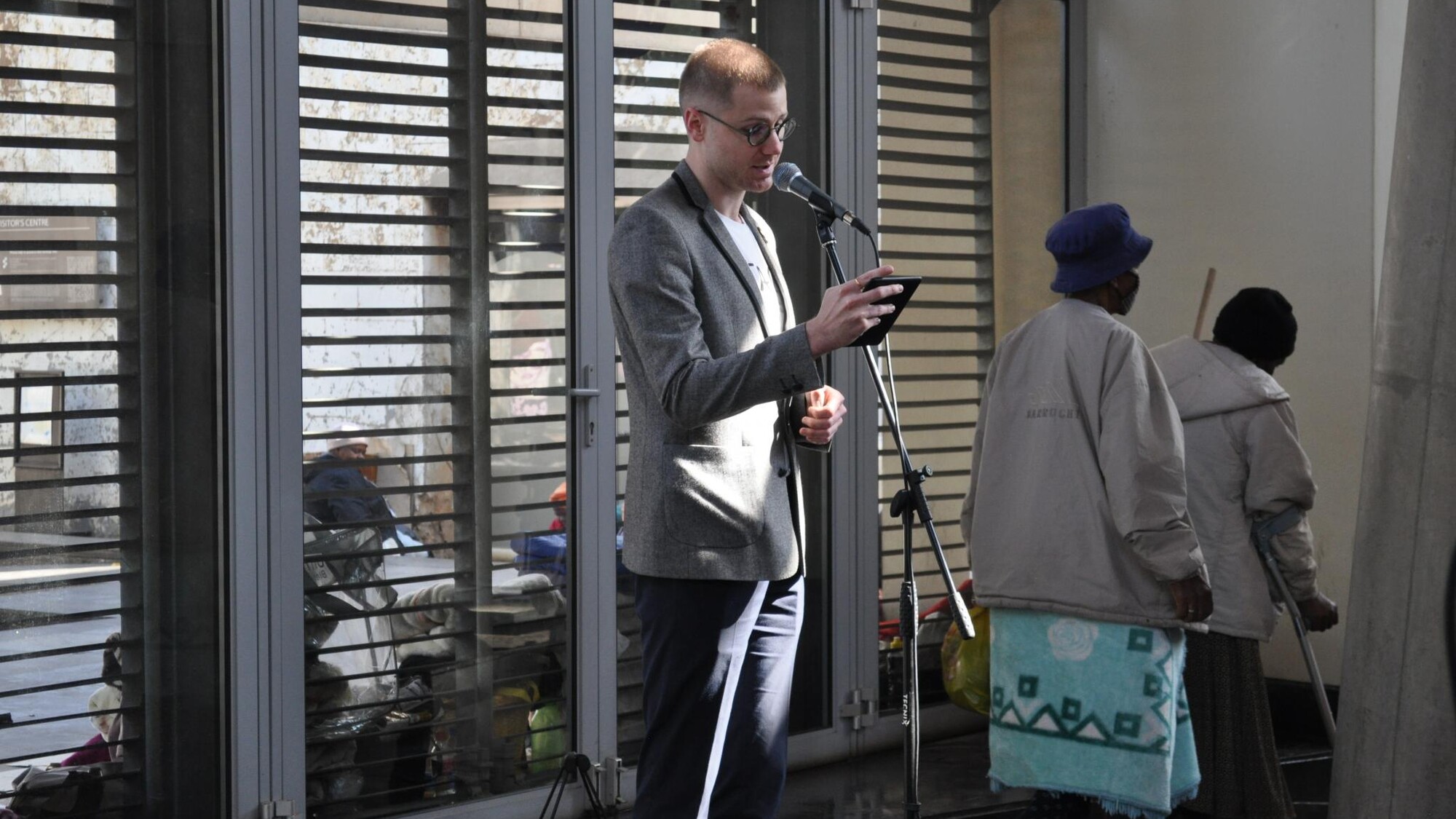
Curator of public engagement, Francois Lion-Cachet opening the Workers' Day event, while outside the Khulumani Support Group veterans peacefully conduct the Galela Campaign Protest for apartheid reparations. Photograph by Micayla Mohamadie.
Lion-Cachet spoke to the origin of Workers’ Day, with its unsavoury history of labour and social conflicts, signifying not only the sacrifices made on the long road toward fair employment but closely linked to the fight for better working conditions and the struggle to overthrow systemic segregation. Issues regarding workers’ rights continue today and remain pertinent and these concerns are addressed in featured artworks. Curator of Conservation, Thina Miya, expanded on the artworks in the foyer that speak to the plight of workers as well as the court’s fundamental theme of justice under a tree. The group moved into the Court Chamber where curatorial intern, Micayla Mohamadie, spoke to the symbolism, warmth and South African visual identity the integrated artworks lend to the Chamber.
The curators and artist walkabout
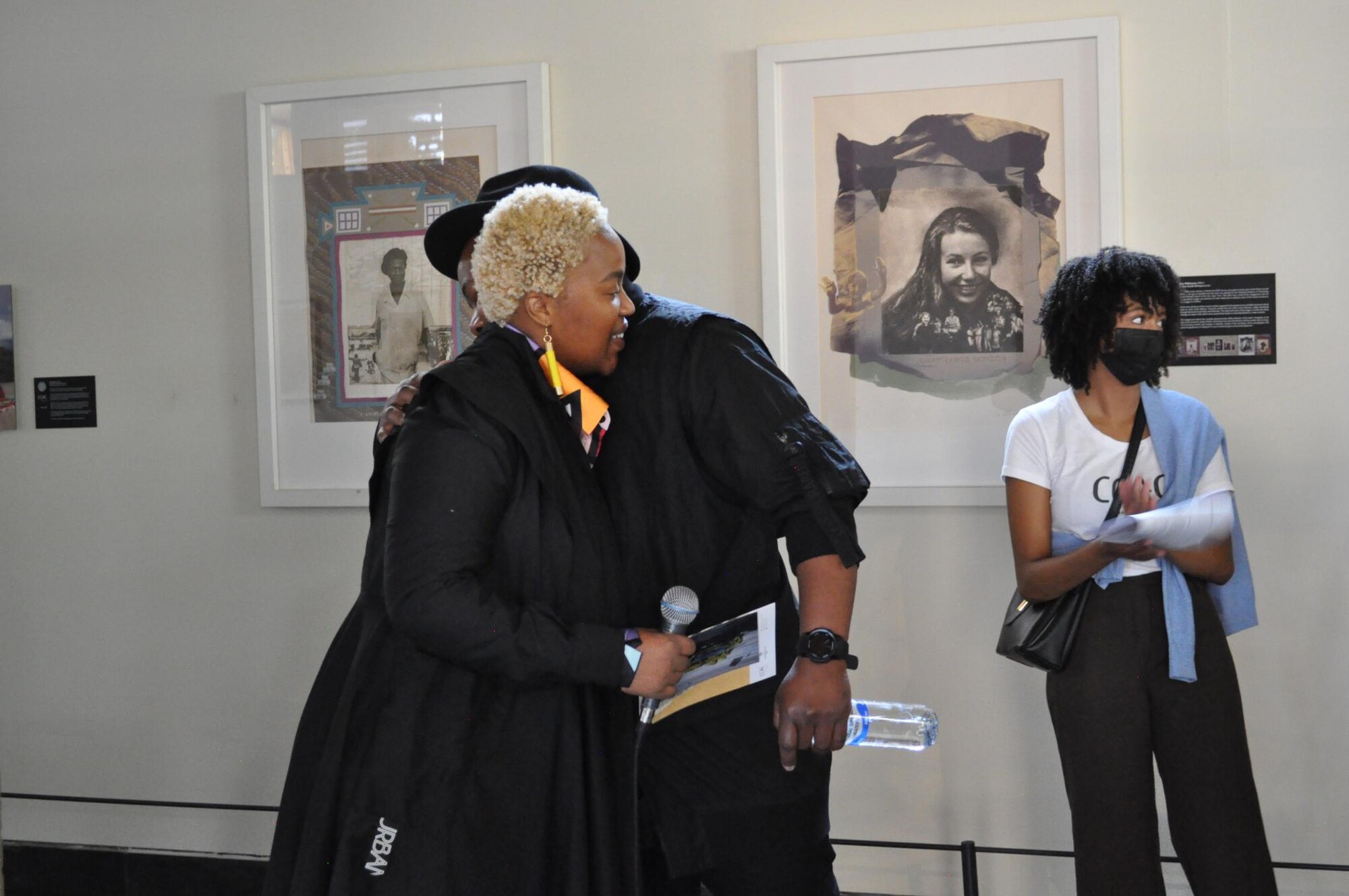
Thabang Lehobye embracing Msaki after the official unveiling of their recently donated video artwork Blood guns and revolutions: Passage of Time (2020). Photograph by Micayla Mohamadie.
The walkabout proceeded to the public gallery where the assistant curator, Kay-Leigh Fisher, introduced the artworks that formed part of the Workers' Day event and opened up the floor for the artists to speak about their work. Amos Miller spoke to the context of creating Steve Biko while in police custody 1977 (1997) and the context of creating the portrait of an important figure in the Black Liberation Movement. Eugene Hön expressed the fragility and horrid reality of sexual assault in male prisons, looking at lost documentation of incidents and the vulnerability in sharing the stories of the prisoners in his work, Exquisite Slave, Popsie/Popsy. Thabang and Msaki spoke to the idea behind Blood guns and revolutions: Passage of Time (2020), in creating a song that questions the rate of exploitation that continually arises, and performative commemorations which only serves hungry politicians while those affected are left behind. Usha Seejarim elaborated on the women she encountered through the creation of Affairs of the Home (2012) and mishandling of those seeking refuge within our borders.
The walkabout concluded with live acoustic performances of Dear Youth and Blood guns and revolutions by Msaki, with delicious refreshments served by XL Cafe.
A special thanks to all of the artists and guests who made it a very special and meaningful event and to Smanga Sibakhulu for his technical support during the musical performance and walkabout. Thank you to XL Cafe for their barista station and delicious refreshments. The exhibition is open to the public on weekdays between 09H00 and 16H00 and will be on display until October. We also host guided Art and Justice tours every second Saturday of the month.
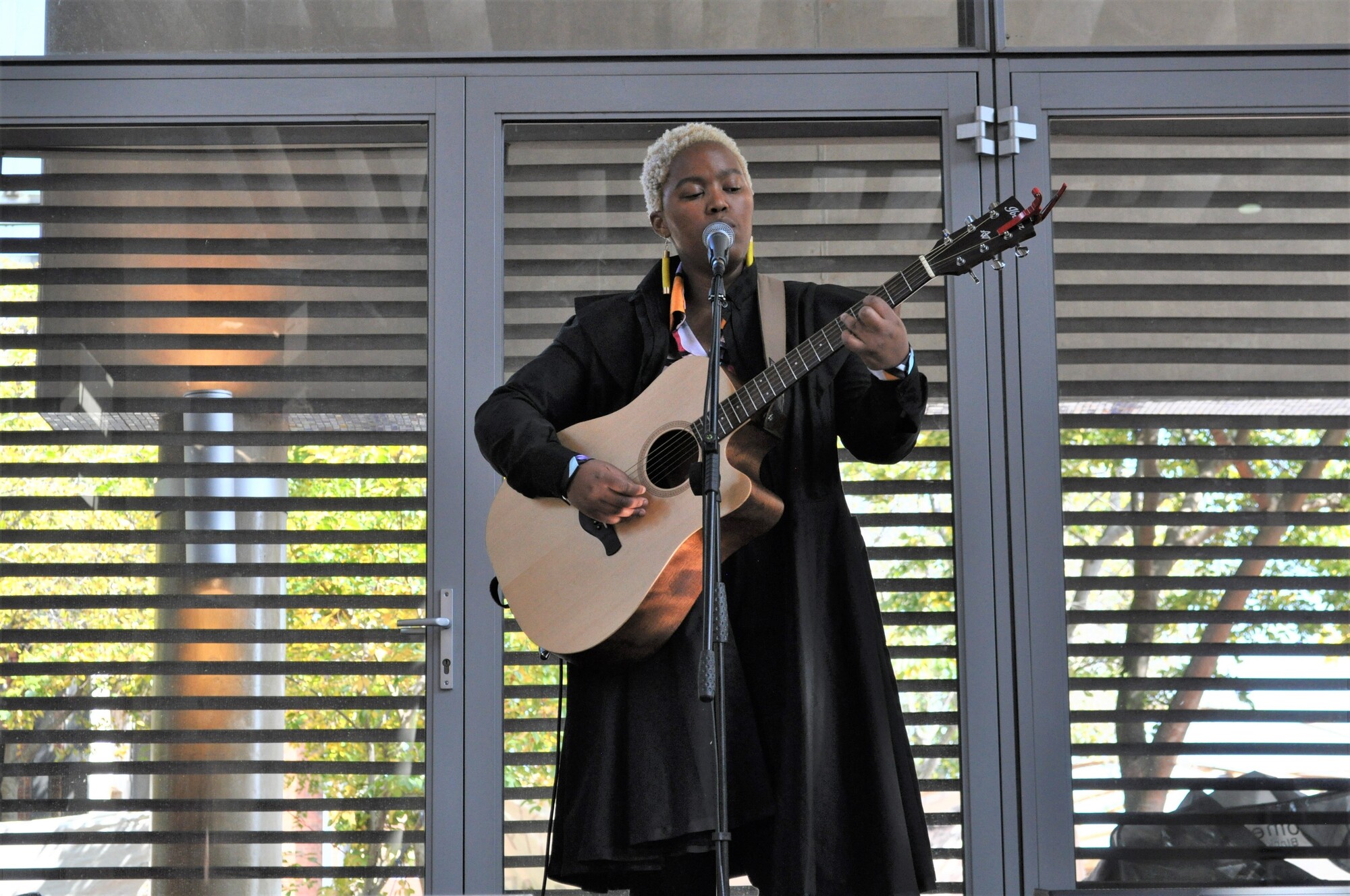
Msaki during her live performance in the foyer of the Constitutional Court. Photograph by Micayla Mohamadie.
